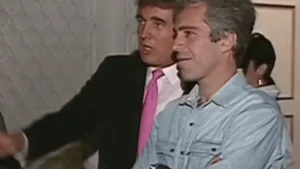
Published 01/12/2025 15:16
The rise of the far-right Alternative for Germany (AfD) party gained new momentum with the support of billionaire Elon Musk, who promoted a live with Alice Weidel, candidate for chancellorship, on his platform X (formerly Twitter). The broadcast, held last Thursday (9), put the acronym in the international spotlight and exposed political tensions in Germany and Europe.
Musk, known for his support of far-right figures such as Donald Trump, is now facing resistance from both the German population and European political leaders, who see his actions as an attempt to interfere in the February 23 elections.
In polls of voting intentions, the AfD appears as the second political force, with around 20% support, the result of dizzying growth over the last decade. Despite its progress, the party still encounters barriers to consolidating power due to rejection by other parties and the mobilization of popular movements against its Nazi-fascist ideology.
The conversation, which had more than 200,000 viewers, featured a speech aligned between Musk and Weidel. The AfD leader reiterated campaign promises that include “remigration”, a term used as a euphemism for mass deportations, border closures and abandonment of energy transition policies. Musk, in turn, classified the proposals as “common sense” and stated that the AfD is “the last hope to save Germany”. During the live, both harshly criticized the government of Chancellor Olaf Scholz, whom Musk has already called “crazy” and “incompetent” in previous posts.
The reaction of German society was immediate. This Saturday (11), more than 10 thousand protesters took to the streets of Riesa, in Saxony, where the AfD was holding its convention to confirm Alice Weidel as its candidate for chancellorship. The protest, organized by left-wing and anti-fascist movements, delayed the start of the event by two hours and blocked roads near the site.
“No to Nazis” and “Let us defend our democracy” were the cries that echoed in the streets. Despite the strong police presence, who used pepper spray against protesters, the mobilization reinforced the message that the far right still faces resistance in Germany.
Riesa’s convention took place amid a polarized political landscape. The AfD, which already leads voting intentions in Saxony, seeks to expand its base nationally with an anti-immigration and environmental policy discourse.
During the event, Weidel promised to tear down wind turbines, reactivate nuclear plants and reverse environmental subsidies, aligning himself with the populist narrative that the energy transition harms the poorest. The leader also publicly thanked Musk for his support, which he defined as “a global force in defense of freedom of expression”.
In Europe, Musk’s behavior generated a wave of criticism. French President Emmanuel Macron classified the billionaire as “an ally of reactionary movements that threaten our democracies”. In Spain, Prime Minister Pedro Sánchez warned that the “ultra-right international”, led by figures like Musk, is promoting hatred and attacking democratic institutions. The European Commission, in turn, announced that it is investigating possible violations of the rules of the Digital Services Act (DSA) by platform X, which would have promoted disinformation and unfairly favored the AfD.
The impact of Musk’s actions went beyond the political scene. More than 60 universities and research institutions in Germany and Austria have announced that they are abandoning the X platform, accusing it of fueling extremist speech. A joint statement stated that the social network’s algorithm prioritizes populist and polarizing content, incompatible with democratic and scientific values. Even Bundesliga football clubs, such as Bayern Munich, decided to leave the social network in protest against Musk’s interference in the public debate.
Meanwhile, Olaf Scholz faces difficulties in containing the AfD’s advance and regaining the population’s trust. In polls, the far-right party appears with around 20% of voting intentions, behind only the CDU, led by Friedrich Merz, which emerges with 30%. The coalition led by Scholz collapsed amid economic and political crises, leaving a vacuum that the AfD is trying to fill with speeches that capitalize on popular discontent.
Amid this scenario, European leaders defend the maintenance of a “cordon sanitaire” against the AfD, which prevents the party from forming alliances with other parties. The strategy, maintained since 2016, has isolated the far right in the German Parliament, but now faces new challenges with the growing legitimation promoted by figures like Musk. The European Commission has promised to use “all available legal means” to protect the integrity of Germany’s elections and combat disinformation.
Resistance to the far right is not just political. The protest in Riesa and the mass departure of institutions from platform X show that sectors of society are still willing to fight for democracy. However, the rise of populist speeches and the support of billionaires like Musk indicate that the battle is far from over. The outcome of February’s elections will be a crucial test for the future of democracy in Germany and Europe, at a time when authoritarian forces seek to advance.
Source: vermelho.org.br

